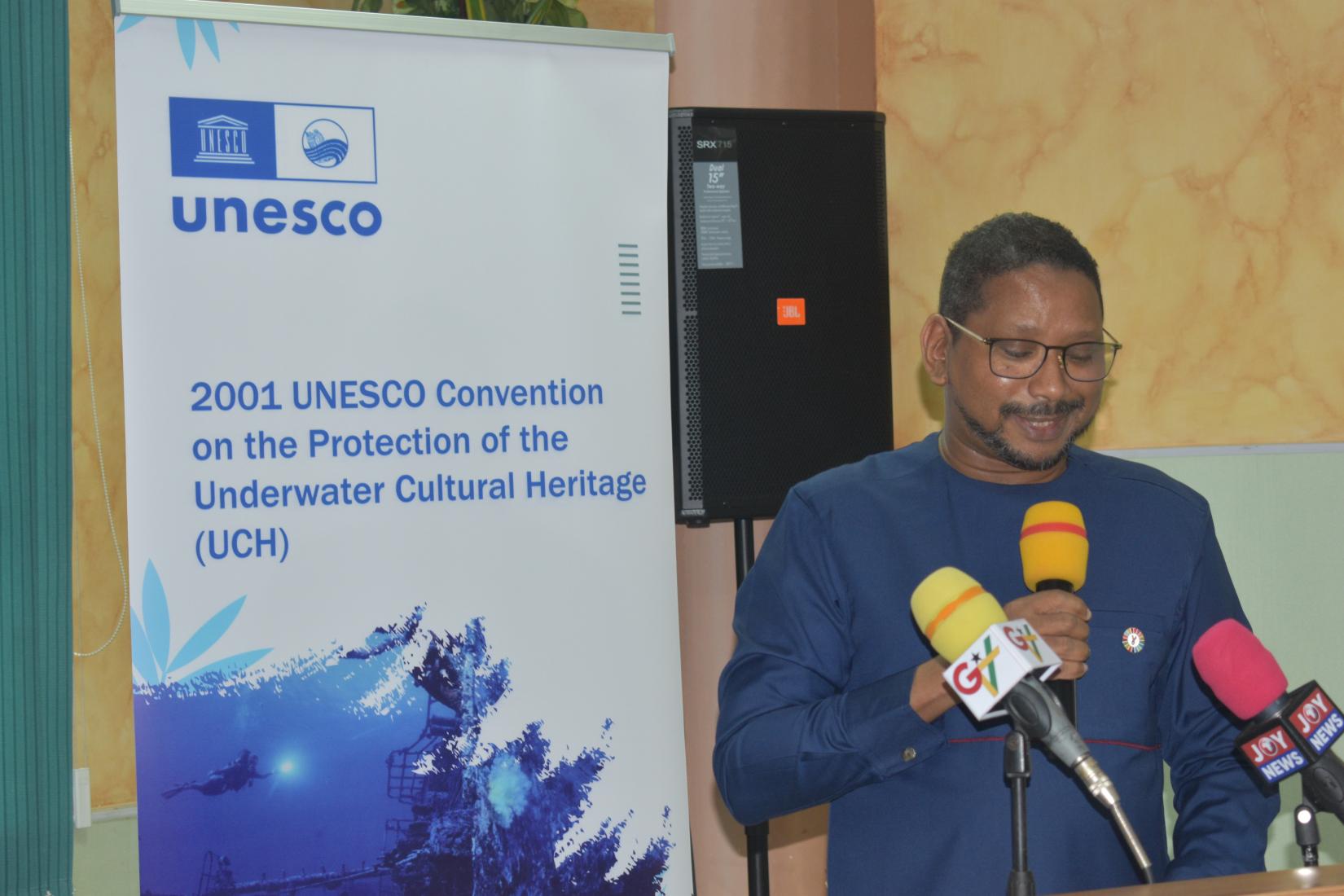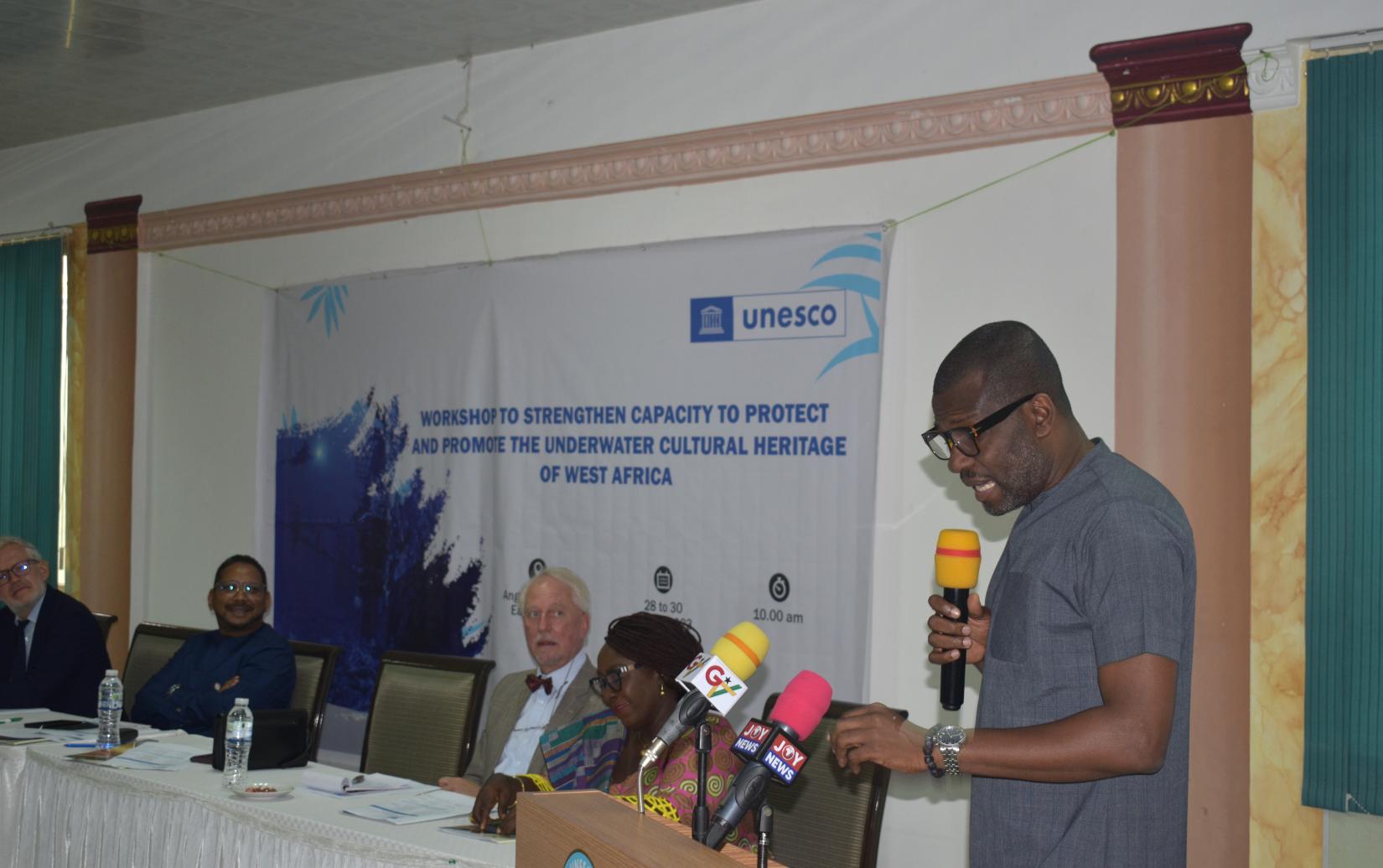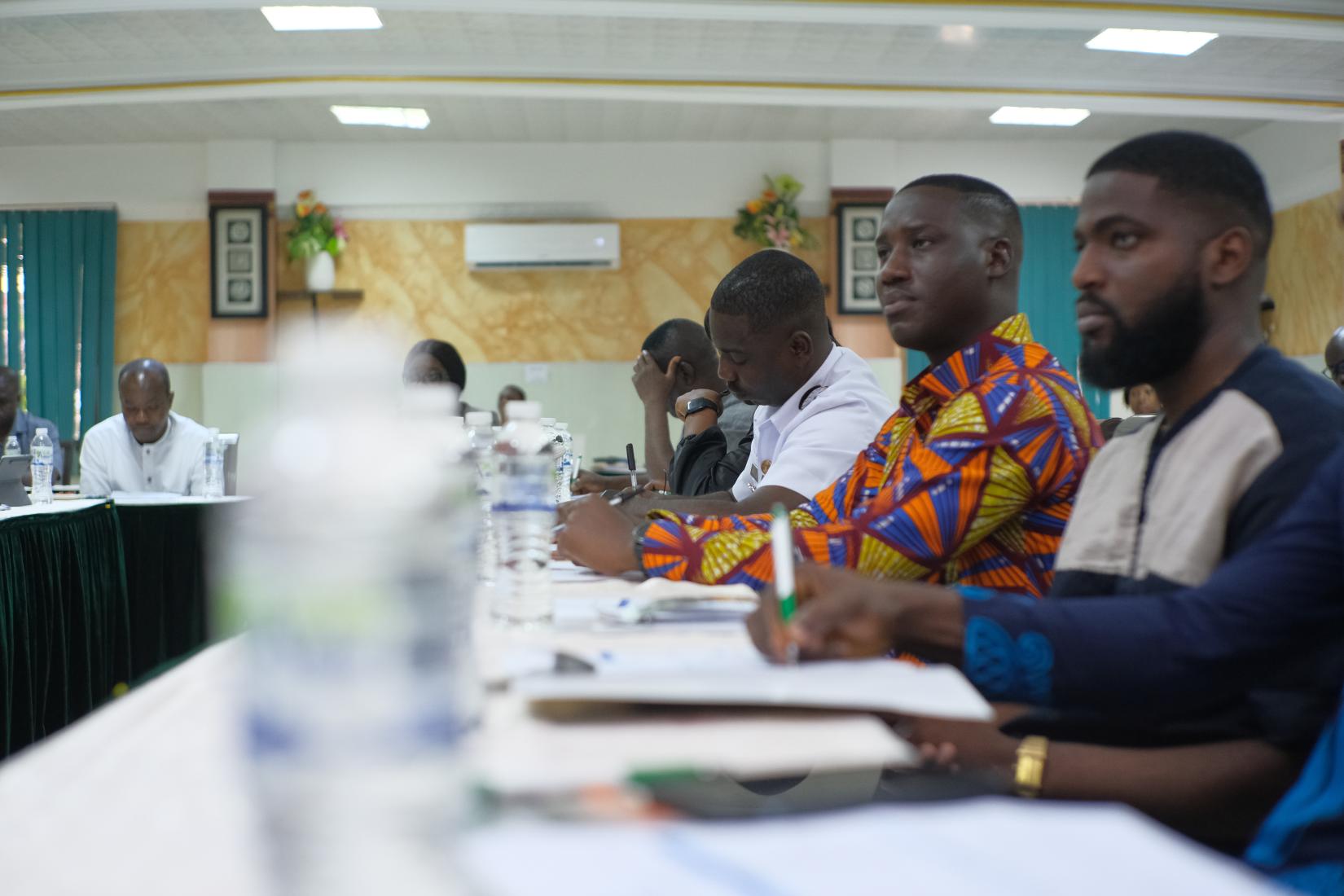[ad_1]
The rich underwater cultural heritage of the coast of West Africa is under constant threat from man-made and natural disasters.
In a bid to promote awareness and preservation of underwater cultural heritage, the United Nations Educational, Scientific and Cultural Organization (UNESCO) Ghana in collaboration with the UNESCO Regional Abuja office and key stakeholders engages in a workshop on underwater cultural heritage under the theme of ” Strengthening National Capacities to Protect and Promote the Underwater Cultural Heritage of West Africa”.
The three-day workshop: from the 28th to the 30th of August in Accra, aims to support the effective implementation of the 2001 Convention on the Protection of the Underwater Cultural Heritage in Nigeria and Ghana as well as build capacity among the focal persons and institutions of the Convention to develop and implement an inventory of the underwater cultural heritage of these two countries.
The UNESCO Representative in Ghana, Mr. Abdourahamane Diallo commended participants gathered for their universal commitment to protect the rich and diverse underwater cultural heritage. He highlighted its importance as an integral part of West Africa’s shared history and identity.
“The underwater cultural heritage of our region is not just a collection of artefacts or historical remnants, but it is a story of our shared past, a testament to our resilience, spirit and shared cultural values. It tells unique stories of trade, migration, worship, and cultural exchange, providing a crucial link to our past” he said.

Mr. Diallo also applauded the Government of Ghana for ratifying the 2001 Convention on the Protection of the Underwater Cultural Heritage in 2015 and urged all governments to contextualize the framework, safeguarding underwater heritage from threats such as environmental damage, oil exploration, and mining activities. “The role of government in this endeavor cannot be overemphasized…however, governments cannot accomplish this task single-handedly. Collaboration and partnerships, both local and international, are essential for effective heritage management. We need to come together, share best practices, and develop cooperative strategies” he added.
The Culture Programme Specialist for UNESCO Abuja, Mr. Philippe Delanghe elaborated on the significant role of Civil Society Organizations (CSOs), Non-Governmental Organizations (NGOs), and Academic institutions in protecting underwater cultural heritage through the development of policies and regulations related to underwater cultural heritage preservation. “They provide input based on their expertise and advocate for legal frameworks that support conservation efforts” he stated.

The Deputy Minister for Tourism Arts and Culture, Mr. Mark Okraku Mantey, emphasized on the urgent need to address the challenges of global warming and climate change and called for action and awareness creation, especially in the context of Ghana’s unique environmental issues. He highlighted the importance of media in spreading awareness and educating the public about these crucial matters.
“The creative industry’s role in promoting this message through various forms of content is a powerful idea. Every action we take towards nature, water, and trees will come back and haunt us and this is an important reality check”.

Other solidarity statements from the Chargé d’affaires and Head of Cooperation, Embassy of France to Ghana, Mr. Julien Lecas, and the Member of Parliament for Ketu South Constituency, Hon. Abla Dzifa Gomashie echoed their commitment to support the protection and safeguarding of tangible and intangible cultural heritage.
The workshop engaged participants in discussions on the various aspects of the underwater cultural heritage of West Africa including discussions on the relevance of Underwater Cultural Heritage to the Blue Economy.
[ad_2]
Source link